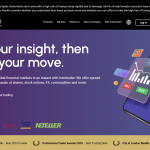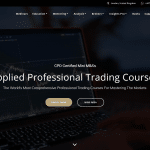Forex brokers act as intermediaries between retail traders and the global foreign exchange market. They provide platforms, pricing, and access to currency pairs so individuals can buy and sell currencies. Understanding how forex brokers operate is essential for traders to choose the right broker and navigate trading costs and execution.
This article explains the role of forex brokers, their business models, and how they connect traders to the forex market.
What Does a Forex Broker Do?
- Offers access to forex markets via trading platforms like MetaTrader 4/5 or proprietary software
- Provides pricing quotes (bid and ask prices) on currency pairs
- Executes buy and sell orders on behalf of traders
- Offers leverage allowing traders to control larger positions with smaller capital
- Facilitates deposits and withdrawals, account management, and customer support
Types of Forex Brokers
1. Dealing Desk Brokers (Market Makers)
- They create an internal market and often take the opposite side of client trades
- Set their own bid-ask prices and spreads
- Provide guaranteed liquidity but may have a conflict of interest
2. No Dealing Desk Brokers (NDD)
- Pass client orders directly to liquidity providers or the interbank market
- Include Straight Through Processing (STP) and Electronic Communication Network (ECN) brokers
- Offer tighter spreads and transparent pricing
How Brokers Make Money
- Through spreads (difference between bid and ask prices)
- Commissions charged on ECN/STP accounts
- Swap fees for overnight positions
- Additional fees for account maintenance or premium services
Execution Process
- Trader places an order via the broker’s platform
- Broker processes the order internally (Dealing Desk) or routes it to liquidity providers (NDD)
- Order is executed at the best available market price
- Broker updates the trader’s account with position and balance changes
Key Takeaways
- Forex brokers enable traders to access the currency markets
- Different brokers use varying models affecting spreads, execution, and potential conflicts
- Understanding broker operations helps in selecting a reliable and cost-effective provider
Frequently Asked Questions
What is the difference between a dealing desk and no dealing desk broker?
Dealing desk brokers execute trades internally, while no dealing desk brokers route orders directly to the market.
How do forex brokers earn money?
Primarily from spreads, commissions, and swap fees.
What is leverage and how do brokers provide it?
Leverage allows traders to control larger positions than their capital; brokers provide leverage as margin.
Are forex brokers safe to use?
Yes, if regulated by reputable authorities like FCA, ASIC, or CySEC.
Can I trade forex without a broker?
No, retail traders need brokers to access the forex market.




Leave a Reply
Please log in or register to share your thoughts.